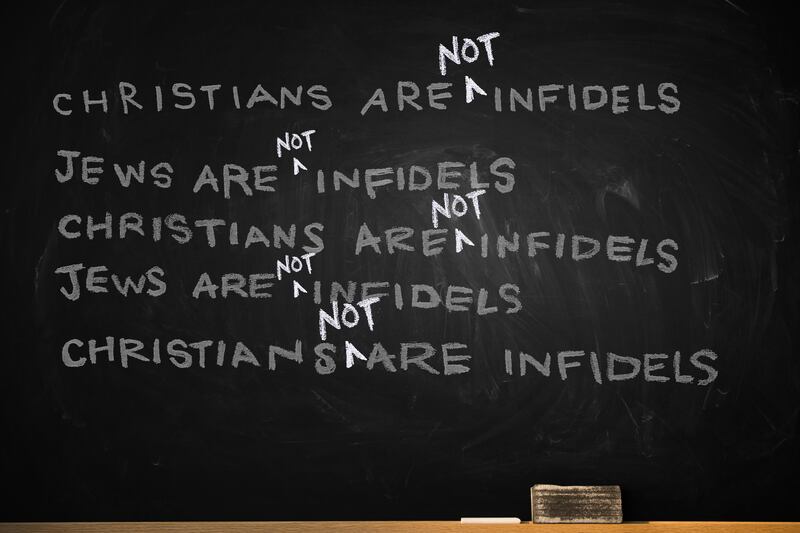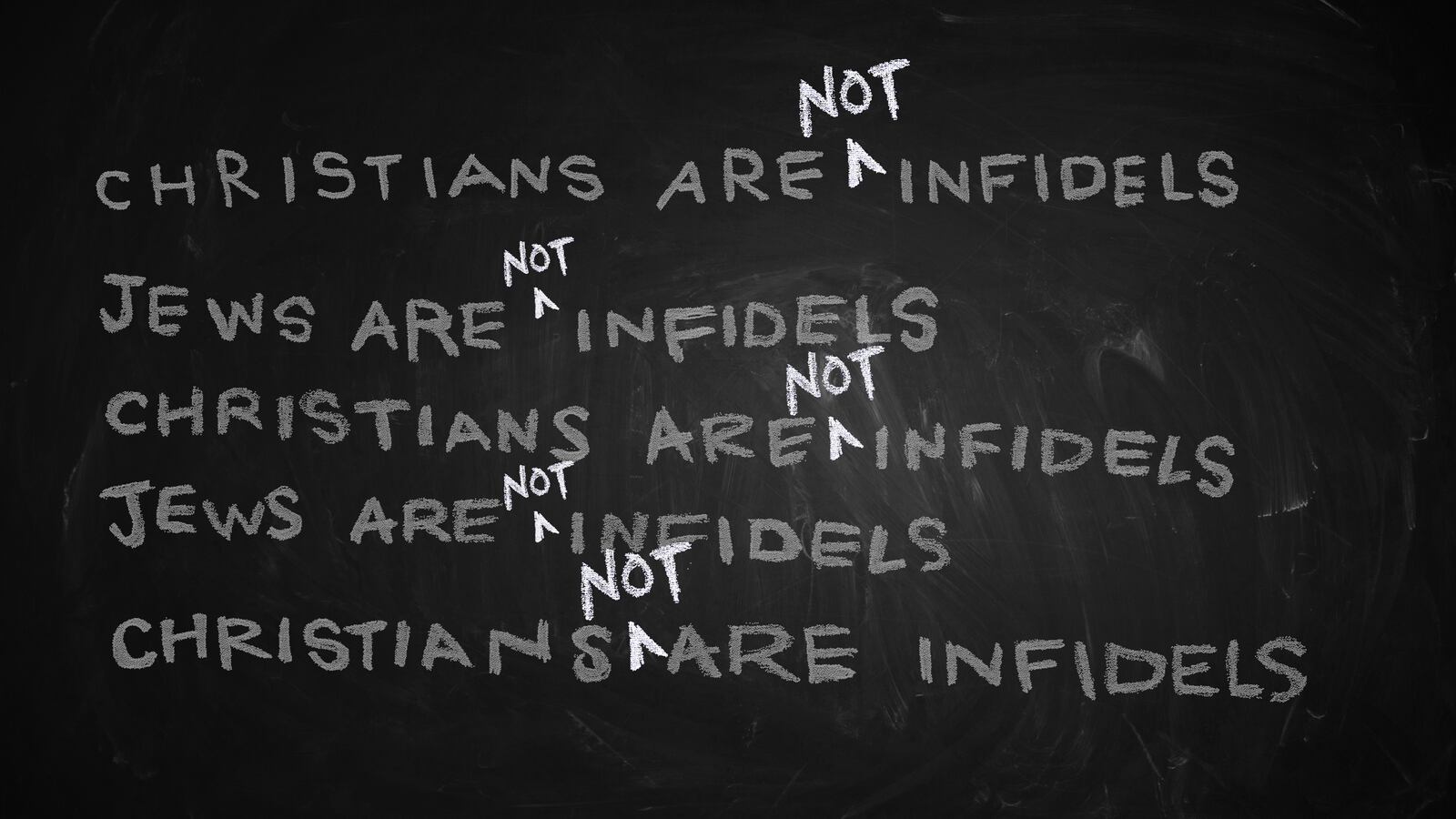As President Obama prepares for his first visit of his second term to Saudi Arabia, pressure is mounting on the State Department to publish the most comprehensive U.S. government study of the Kingdom’s textbooks.

While the study has been finished since the end of 2012, it has nonetheless been kept from the public, according to a new report by the Foundation for Defense of Democracies, a center-right think tank in Washington.
The report, shared with The Daily Beast ahead of publication Tuesday, says, “The State Department is in possession of a uniquely exhaustive set of recent findings about incitement in Saudi Arabia's education system, findings that it has declined to release for public consumption.”
The textbook study itself, according to current and former U.S. officials, presents a mixed picture. While it praises the Saudis for making some reforms and removing the most offensive language from textbooks, it still found there was room for improvement.
State Department officials say the study of Saudi textbooks was never meant to be released to the public. The president of the non-profit that wrote the study told the Daily Beast the same.
But others disagree. Michael Posner, who served as Assistant Secretary of State for Democracy, Human Rights and Labor for Obama’s first term said the State Department always had the choice to publish the textbook study.
“We commissioned the study to assess and evaluate the content of the textbooks with the intention of sharing our findings with the Saudi government and with the option, depending on the findings, of making it public if the problems persisted,” Posner told the Daily Beast.
Posner declined to discuss the contents of the unpublished Saudi textbook study in the interview. But he spoke about the problem of Saudi textbooks in more general terms.“Among the references that were most offensive were commentary that linked Christians and Jews to apes and pigs,” Posner said. “If those references are still in some textbooks then the problem hasn’t been solved.”
While the content of Saudi textbooks on the surface may appear to be a less urgent issue for the U.S.-Saudi relationship than counter-terrorism, the security of oil fields or Iran’s quest for a nuclear weapon, the Kingdom’s support for Islamic extremism has been a quiet priority for U.S. policy makers since 9/11. Saudi textbooks are not only used in Saudi schools, but they are also sent free of charge to Muslim schools all over the world, including in the U.S.
Often these textbooks promote the kind of religious chauvinism embraced by Sunni terror groups like al Qaeda. A June 12, 2006 cable from the U.S. embassy in Riyadh disclosed by WikiLeaks highlights this kind of bigotry. It says an eighth grade textbook for example says, “God will punish any Muslim who does not literally obey God just as God punished some Jews by turning them into pigs and monkeys.”
This cable says the textbooks reviewed by the U.S. embassy in Saudi Arabia were borrowed by U.S. diplomats from children in part because the Saudi government was reluctant to share them.
A June 16, 2008 WikLeaks cable from the U.S. embassy in Saudi Arabia notes that Saudis were making a “good faith effort” to reform their textbooks, but nonetheless expressed disappointment over “continued occurrences of intolerant language in the textbooks we reviewed.”
Current and former U.S. officials say the State Department in 2011 commissioned the International Center for Religion and Diplomacy (ICRD), a non-profit that promotes religious tolerance, to evaluate Saudi textbooks in 2011 in part because earlier efforts were never comprehensive. The Foundation for Defense of Democracies said the initial contract for the study was for $500,000.
Douglas Johnston, the president and founder of ICRD said that he recommended against publishing the results of the study. “We strongly suggested it should not be published because they are making great progress on this. We can achieve a lot more if we pursue this outside the public domain.”
The Foundation for Defense of Democracies quoted sources familiar with the study however painting a different picture. Their report said Saudi textbooks “create a climate that fosters exclusivity, intolerance, and calls to violence that put religious and ethnic minorities at risk.”
Posner himself confirmed that the textbook study was completed at the end of 2012. He said he tried to meet with Saudi Arabia’s ambassador about it before he left government in early 2013, but he was never able to schedule the meeting.
“To me the test of whether there is real improvement is that there is a decision across the board to remove the discriminatory and offensive language in all of the textbooks,” Posner said. “If that language still exists in even some of the books, then the problem has not been solved.”
David Andrew Weinberg, a senior fellow at the Foundation for Defense of Democracies and the author of his think tank’s report on the Saudi textbook study, said the Saudis still had much work to do.
“I think it’s credible that there are less instances in Saudi elementary school textbooks of material that is hateful or encouraging violence,” Weinberg said. “But the value of that is minimal when all indications suggest Saudi students who go through the official Saudi education system are still getting indoctrinated with horrific material at the high school level.






